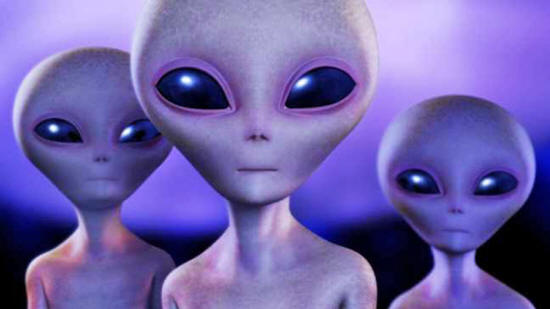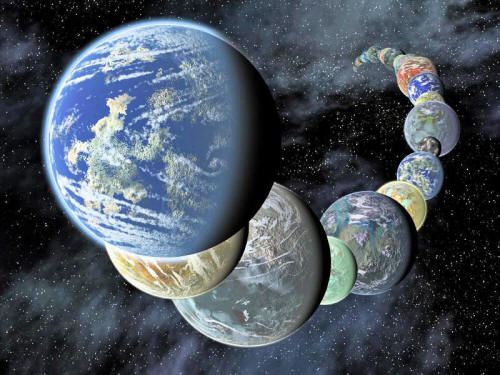|
from
IFLScience Website
Albert Ziganshin/Shutterstock.
It is estimated there are 100 billion planets in the Milky Way, itself one of hundreds of billions of galaxies.
On one planet, Earth, we know life arose, but there should be millions of Earth-like habitable planets in our galaxy alone with the capability to support life. This begs the question: Where is everyone else?
This is a problem that has long plagued astrophysicists, and there’s no clear answer. It is known as the Fermi Paradox, having been first postulated by Italian astronomer Enrico Fermi in 1950.
If life is so abundant, he said, why have we never heard from anyone?
There are a number of possible solutions, some more unnerving than others. Let's take a look at a few of them.
Space is just too big
The first, and perhaps most popular, simply relates to the vast distances involved in the cosmos.
Consider that habitable planets in our own galaxy can be thousands of light-years away, making two-way communication via electromagnetic radiation - the only way we know how to communicate - nigh on impossible.
For galaxies beyond the Milky Way, millions of light-years away, this obviously becomes even more difficult.
It may be that distances are simply too large for conversations to take place across space-time.
We haven't looked hard enough
It may also just be that we haven’t looked hard enough.
To date, most of our search for extraterrestrial intelligence (SETI) has relied on limited hunts using a few telescope arrays around the world; the SETI Institute has performed most of this searching so far but, as of yet, nothing has been found.
Earlier this year, a $100 million (£65 million) project called Breakthrough Listen was announced, funded by Russian billionaire Yuri Milner, which will be the most extensive search for signals yet.
It will use two of the most powerful radio telescopes in the world, the Green Bank Observatory in West Virginia and the Parkes Observatory in Australia, to scour the closest million stars to Earth, and also the nearest 100 galaxies, for any signals either purposefully or accidentally sent our way.
It's our best chance of finding anything yet.
The Great Filter
If nothing is found after the 10 years the Breakthrough Listen project is expected to run, though, things get a bit more tricky.
One other solution to the Fermi Paradox suggests that there is a Great Filter in the universe, at which intelligent life stops, perhaps through self-destruction or for other reasons.
It could be that we are the first species to pass this filter, or we are yet to reach it - and all other intelligent civilizations before us have been destroyed. Eek.
We're too primitive
Maybe, some postulate, there are other ways to communicate that we don’t yet know of; maybe alien civilizations are out there waiting for us to reach a certain level of technological maturity before they make contact.
That could be the case, but until we work out what those forms of communication could be, there’s not much we can do.
We are alone... or better, Are we alone, or one of many?
Ultimately, though, the last answer to the Fermi Paradox we will discuss is also the most unnerving:
Consider that we still do not know how multicellular life on this planet began, how it was able to move from single cells to complex organisms. We also aren’t sure how life got here in the first place, where our water came from, and much more.
And what about the circumstances that have led to the evolution of humans?
Our planet orbits at the exact distance from the Sun, the habitable zone, where temperatures are moderate enough for us to live. We also had to wait until the dinosaurs were wiped out by a freak asteroid for mammals to get a foothold on the planet.
And even now, human civilization is only a few thousand years old; a tiny, tiny fraction of the 13.8 billion-year-old universe.
It may be that Earth is the only cosmic fluke that has allowed intelligent life to evolve.
Are we alone, or one of many? NASA/JPL-Caltech.
Many experts choose not to believe the latter possibility.
Instead, it's thought we will find some microbial life in the Solar System in the next few decades, either succeeding or preceding the detection of a signal from beyond. But there’s no denying that it’s a little disconcerting that we haven’t found anything yet.
Until we find evidence to the contrary, though, we are by ourselves on this small ball of rock hurtling through the cosmos. We are the only example we know of sentient life in the universe.
That makes humanity, and Earth, incredibly special, and we should be doing all we can to preserve this fascinating and lonely life-harboring world we inhabit.
As the late Sir Arthur C. Clarke once famously said:
|



